Audio Sermons
You can listen to some of our recent sermons online at: https://soundcloud.com/user-635847057.
God bless you!

You can listen to some of our recent sermons online at: https://soundcloud.com/user-635847057.
God bless you!
Here is a link to our Diocesan Protection policy: CLICK HERE.
December 17–Advent 3, 9:30 AM, Holy Communion. Following the service we will have the Greening of the Church.
December 24–Advent 4, 9:30 AM, Morning Prayer. No Catechism Hour following the service.
December 24–Christmas Eve, 4:30 PM. Lessons and Carols with Holy Communion.
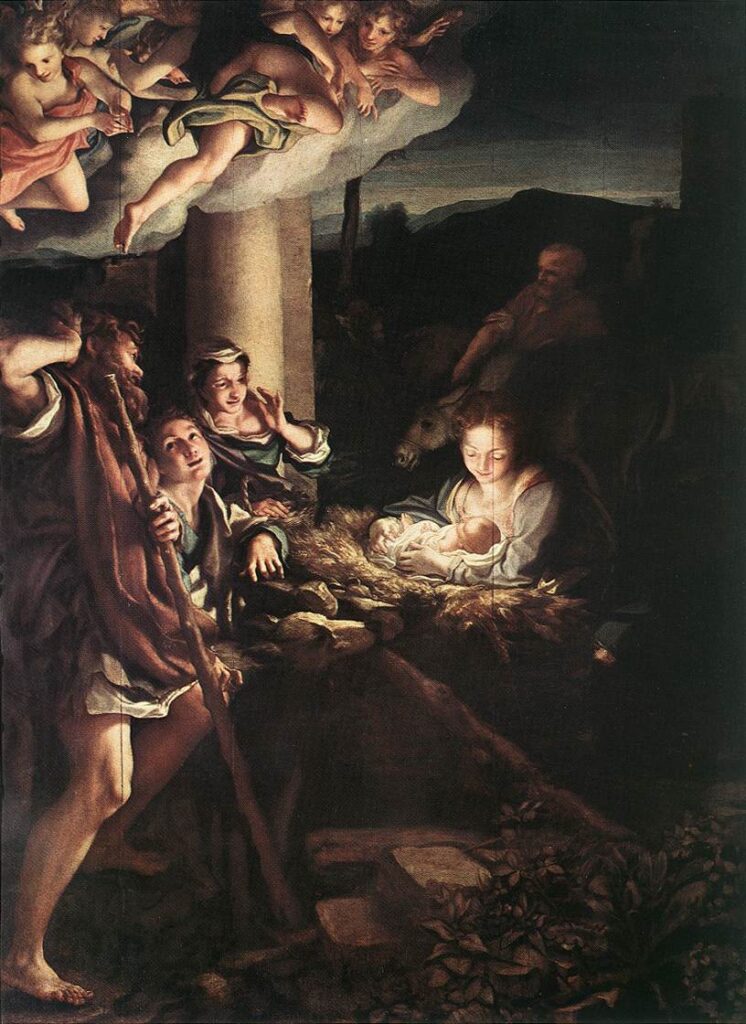
Join us for Christmas at Holy Trinity!
Worship Schedule
Christmas Eve (Dec. 24)–Lessons and Carols, 6:00 PM
Christmas Day (Dec. 25)–Holy Communion, 9:30 AM
Holy Innocents (Dec. 28)–Holy Communion, 7:00 PM
Circumcision of Christ (Jan. 1)–Holy Communion, 9:30 AM
Epiphany (Jan. 6)–Holy Communion, 7:00 PM
Join us for our Holy Week services at 14700H Flint Lee Road, Chantilly. We look forward to seeing you there!
Wednesday: 7:00 PM, Sung Evening Prayer and Litany.
Maundy Thursday: 7:00 PM, Holy Communion and Stripping of the Altar
Good Friday: 12:00-3:00 PM, Stations of the Cross and Meditations on the Seven Last Words of Christ from the Cross.
Easter Even: 7:00 PM, Easter Vigil, Blessing of the Paschal Candle and Holy Communion
Easter Sunday: 9:30, Holy Communion with Choirs and Strings; luncheon following
Thanks be to God, Holy Trinity has moved to our new location in Chantilly: 14700H Flint Lee Road.
We hope that you can join us for a Sunday service at 9:30 AM, with fellowship and catechism hour following. May God bless us in our new location as we seek to follow Him in faith, hope, and love.
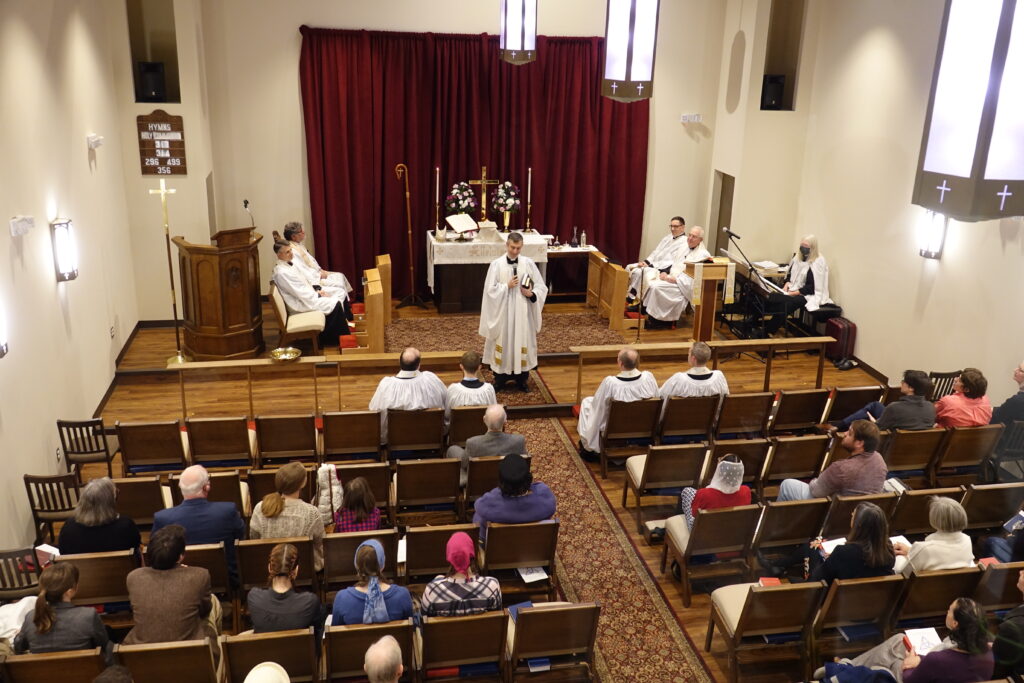
Until further notice we are not meeting in person, but livestreaming our services at our Youtube channel: https://www.youtube.com/channel/UCxl6sVj3vc8PESsZXEFjGKA?
9:30 AM, Sunday mornings. Join us in prayer! Here are some photos of our Livestream worship setup.
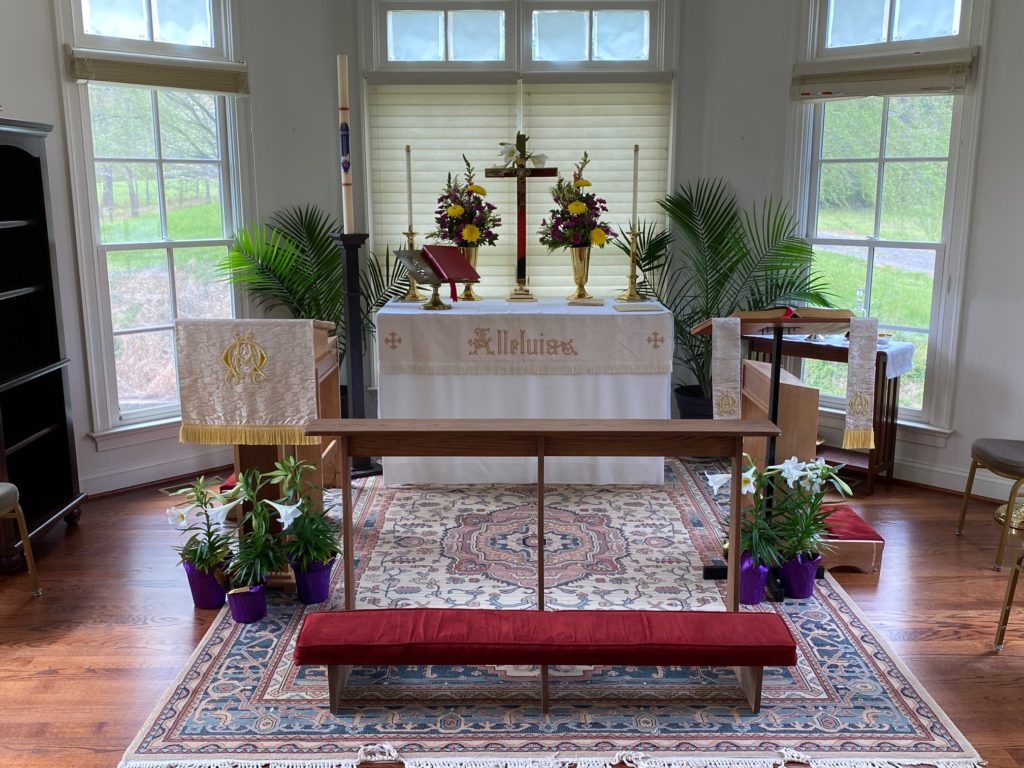


Holy Trinity will be meeting for worship on March 15, 2020 at 9:30 am at Trinity Christian School, with the following precautions:
Ash Wednesday
7:15 PM
Mt. Calvary Baptist Church (4325 Chain Bridge Rd, Fairfax, VA 22030)
Imposition of Ashes, Penitential Office, Holy Communion
Join us as we seek to enter into this holy season in faith, so that we might know our Savior more and trust Him above all else!
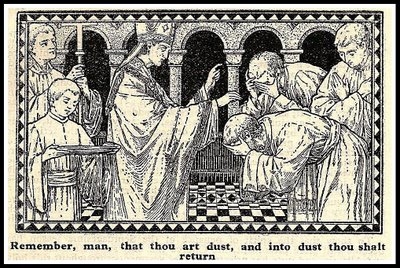
On Tuesday, December 24 we will have our annual Christmas Eve service. It will be held at Trinity Christian School in Fairfax (11204 Braddock Road) at 7:00 PM.
The service will include Lessons and Carols, and Holy Communion.
Please join us!


Free after-school youth choir from 3:45-5pm on Thursdays beginning September 19, 2019.
The choir rehearses at the Jones home in the Providence Elementary & Lanier Middle neighborhood of Cobbdale.
Snack is served each week.
Small ensemble opportunities for advanced singers
Performances will be approximately every 2-4 weeks at Holy Trinity Church in Fairfax as a part of our Sunday worship service.
Invite your friends!
Please click here to sign up or to request more information.
Participants will:
Holy Week 2019 at Holy Trinity Reformed Episcopal Church
April 14-21
Palm Sunday. 9:30 AM
at Trinity Christian School (11204 Braddock Road, Fairfax VA 22030).
Procession with Palms, Holy Communion.
Wednesday in Holy Week. 7:00 PM
at Mt. Calvary Baptist Church (4325 Chain Bridge Road, Fairfax VA 22030).
Evening Prayer, the Litany.
Maundy Thursday. 7:00 PM
at Mt. Calvary Baptist Church.
Holy Communion with stripping of the altar.
Good Friday. 12:00-3:00 PM
at Mt. Calvary Baptist Church.
Meditations on the Seven Last Words of Christ.
Easter Even. 7:30 PM
at Truro Anglican Church chapel (10520 Main St, Fairfax, VA 22030)
Blessing of Paschal Candle, Renewal of Baptismal Vows, First Alleluias of Easter, Holy Communion.
Easter Sunday. 9:30 AM
at Trinity Christian School.
Easter Sunday Holy Communion service.
We will be meeting at Mt. Calvary Baptist Church (4325 Chain Bridge Road,Fairfax, VA 22031) in Fairfax at 7:15 PM for our Ash Wednesday service. This service marks the beginning of Lent. We hope that you can join us!
Here are some of the disciplines our parish is taking on this Lenten season:

Scripture Reading Schedule
This year we will read through most of the Four Gospels in Lent; on Wednesday nights and Sunday nights our teaching will focus on the Gospels. You can refer to the bottom of the page for a reading schedule.
Prayer
Commit yourself to faithful prayer during the Lenten season. Take 5 minutes on your lunch break every day to pray for our parish—specifically, for least one other family or member of the parish, by name. Also, spend time every day praying for someone you know who isn’t a Christian, that they might come to know Jesus.
Use the Daily Office and/or Family Prayer to guide you.
Fasting and Abstinence
Please make use of fasting (either entirely or partially) from a significant thing in your life, to provide space for prayer and funds for giving. Ideas include particular foods (sweets, meat, alcohol) or occupations (social media, entertainments).
Giving
We are joining with the whole REC as a part of the REC 100 Program to ask every adult member to give $100 to a special fund for domestic missions and Parish planting. Please refer to the brochure for more information on this campaign. In addition, make an effort to give sacrificially to the poor. For example, you can give to local ministries like the Lamb Center, or ministries throughout the country at matthew25i.org (such as St. Lazarus Mission in Ohio, or to the Church Army).
Ash Wednesday, March 6—St. Matthew 1-3
March 7—St. Matthew 4-6
March 8—St. Matthew 7-9
March 9—St. Matthew 10-12
1st Sunday in Lent—Break/catch up.
March 11—St. Matthew 13-15
March 12—St. Matthew 16-18
March 13 (Ember Day)—St. Matthew 19-20
March 14—St. Matthew 21-22
March 15 (Ember Day)—St. Matthew 23-24
March 16 (Ember Day)—St. Matthew 25-26
2nd Sunday in Lent—Break/catch up.
March 18—St. Mark 1-3
March 19—St. Mark 4-6
March 20—St. Mark 7-8
March 21—St. Mark 9-11
March 22—St. Mark 12-13
March 23—St. Luke 1-2
3rd Sunday in Lent—Break/catch up.
March 25—St. Luke 3-4
March 26—St. Luke 5-6
March 27—St. Luke 7-8
March 28—St. Luke 9-10
March 29—St. Luke 11-12
March 30—St. Luke 13-15
4th Sunday in Lent—Break/catch up.
April 1—St. Luke 16-17
April 2—St. Luke 18-19
April 3—St. Luke 20-21
April 4—St. John 1-2
April 5—St. John 3-4
April 6—St. John 5-6
Passion Sunday—Break/catch up.
April 8—St. John 7-8
April 9—St. John 9-10
April 10—St. John 11-12
April 11—St. John 13-14
April 12—St. John 15-16
April 13—St. John 17-18
Palm Sunday—Break/catch up.
Holy Week—Read the Propers (the Gospel lesson in the Prayer Book, specifically) appointed for each day.
We will have a Christmas Eve Lessons and Carols with Holy Communion at 7:00 PM at Mt. Calvary Baptist Church (4325 Chain Bridge Rd, Fairfax, VA 22030). There will be wonderful special music that day, we will hear the story of redemption read, and we will have the opportunity to pray and receive Holy Communion. We hope you can join us.
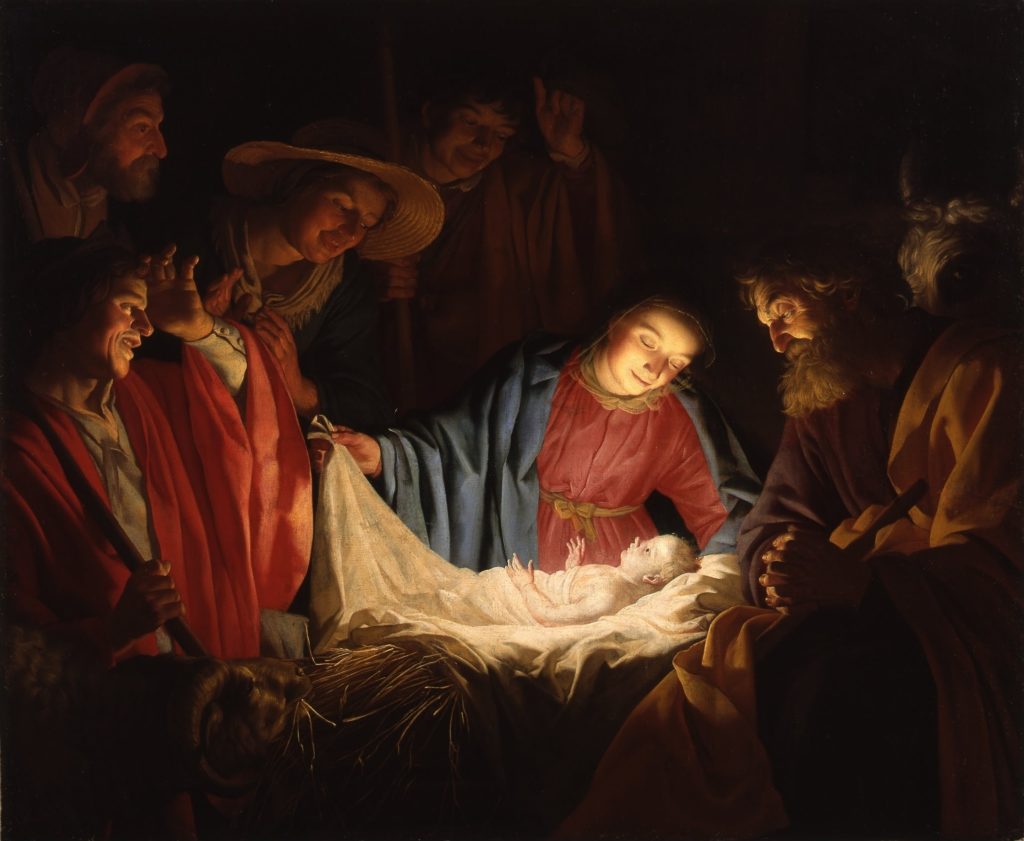
Please excuse any typos in this manuscript.
The Gospel lesson for this day is taken from the Sermon the Mount, specifically from Matthew chapter 5 beginning at verse 20. I invite you to turn there in your Bibles.
The passage that we read this morning introduces a series of 6 statements where Jesus says: you have heard that it was said…but I say. In these passages, true to what Jesus has just said immediately before in verse 17 that He has come not to abolish the Law and the Prophets, but to fulfill them, Jesus makes an authoritative interpretation of what the Law of Moses always meant. He takes passages from the Law of Moses and gives the interpretation that had always been intended, that had been lost in misinterpretation. For instance, in our passage from today, we have heard Jesus interpret the 6th Commandment: thou shalt do no murder. But Jesus reveals to us that the matter of murder is not merely about outward keeping of the commandment, but is also about an inward keeping of the commandment: it is about anger, and hatred, as well as unlawful taking of life. We are forbidden in the passage from unlawful anger, from grudges, as well as forbidden from murder.
Jesus says: whoever is angry with his brother without a cause shall be in danger of the judgment: and whosoever shall say to his brother Raca, shall be in danger of the council: but whosoever shall say: Thou fool, shall be in danger of hell-fire. It should be noted that there is a type of anger that is not wrong. It is not wrong, or sinful, to be angry against, or about, sin. It is not wrong to be angry when we have been wronged. But anger is sinful when we are angry at or about the wrong things, or when we are angry too much. If we do not or cannot control ourselves when we are angry, or when our anger causes us to do other sinful things, then it is sinful. The Psalms and Ephesians tell us: in your anger, do not sin. James reminds us that we are to be slow to be angry—for human anger does not produce the righteousness of God.
Anger when it is sinful can cause great divisions between people. Jesus gives two examples of the types of things that can be said in anger. The brother could be called “Raca,” or “you fool.” The term Raca, it seems, is a relatively innocuous term of admonishment. It is untranslated for us because the term is Aramaic, and means something like “blockhead” or “empty-head.” The terms Jesus uses here are not particularly vile or wicked terms, the sorts of things that might shock the conscience. They are the types of words that respectable people might use in frustration or anger with another. And yet these terms, said in earnest and in sinful anger, put in danger of judgment; they put us in danger, Jesus says, of hell-fire.
This is where we might think: wow, Jesus. I can understand danger of hell-fire for the deliberate taking of life, for murder. But for anger? For angry words said in anger? Sinful anger often has as its close relative pride, the sort of pride that seeks to control things, other people around us. This sort of desire for control is not always the root of sinful anger, but it often is, as we seek to usurp God’s kingship with our own. The Scriptures tell us that God is slow to anger, and abounding in steadfast love. But sometimes I fear we picture Him as capricious and quick to anger, and so we excuse our own quickness to anger by thinking that He is angry. But Jesus is teaching us here that the very thing that may make God angry is our anger.
And so, Jesus instructs us to make peace with our neighbors while we can. He says: “therefore, if thou bring thy gift to the altar, and there rememberest that thy brother hath ought against thee; leave there thy gift before the altar and go thy way; first be reconciled to thy brother, and then come and offer thy gift.” Rather than wallowing in anger, and allowing grudges to build, Jesus says that when we come to worship, we are to be reconciled with our brothers and sisters. In its original context, this thing that Jesus says here is probably a bit of an exaggeration. You see, most of the people listening would have been from Galilee, and it would have been several days’ trip to Jerusalem to make an offering at the temple. If they remembered they’d offended someone and left there gift and went to be reconciled, it was several days’ trip to go North to Galilee for the reconciliation, and several days’ trip back, all the while leaving their gift at the altar.
But this is point that Jesus is making. We are to sacrificially seek to make reconciliation with those we have offended—in other words, even when it is inconvenient for us. Even when we may think that we don’t have anything to apologize for on some level, we are to seek reconciliation. Jesus says if you remember your brother has ought against you—not that you remember something you did. If you remember there is a lack of reconciliation, go and seek that reconciliation. This is particularly important in the context of worship. In fact, the New Testament Church as long interpreted this passage as referring to Holy Communion, as well as its original intent. This is why before communion we hear we are to be at charity with our neighbors if we come to this table. And if we are not at charity, at peace with our neighbors, we are to seek reconciliation before we come to this table. The Lord’s Table is a symbol and seal of the peace that God has made with mankind through Jesus Christ. But it is also a symbol of the unity of the body of Christ, since we partake together. And if we are not at peace with someone else in the body, the Scriptures, and the Prayer Book following the Scriptures, command us not to partake until we have made the effort of reconciliation.
Jesus emphasizes the urgency of this task in his next short parable: be reconciled quickly with your adversary, while you are on the way with him, lest when you come before the judge, the judge finds you guilty and casts you into prison. There is an urgency to the need for reconciliation with our brothers and sisters, because we ultimately are going to appear before the judge, before God, the judge of the world—and have to give an account of the things that we have done. The ancient Bishop Hilary of Poitiers says it like this: “The Lord suffers us at no time to be wanting in peaceableness of temper, and therefore bids us be reconciled to our adversary quickly, while on the road of life, lest we be cast into the season of death before peace be joined between us.[1]”
I know the complications that there are in this teaching. I know the various very hard and complicated situations that people face with other people, and with the division and the hurt that can happen. I know that human beings are not always reasonable. Jesus knows that too. In fact, the Apostle says: if possible, as much as it relies on you, be at peace with all men. We can’t control the actions of others. We can’t make other people reasonable. But we can seek to make peace, as much as it relies on us. And sometimes, I think that we as Christians even are not really willing to do this. We may pay it lip service, but really we desire or want peace on our own terms, not peace on God’s terms and not peace that would really involve the other person’s desires and needs.
True reconciliation is going to involve humility, and it will involve trust. It will involve humility, because we will have to admit that we may have been wrong, and ask for forgiveness. It involves trust in God, that God would be involved in the process and that He would ultimately work to bring about good. We need to be willing to reconcile and forgive, even if the other person is not.
There are times when this will take a lot of time. People can develop patterns of manipulation over several years, hurting others, then demanding reconciliation, even using passages like this one to do so. To help think about this, an ancient Father notes this: But such as was the offence, such should also be the reconciliation. If you have offended in thought, be reconciled in thought; if in words, be reconciled in words; if in deeds, in deeds be reconciled.[2] Deeds of love and mercy must match the reconciliation, in addition to words.
This is a hard thing. I know this. More important than me knowing it, Jesus knows it. The lesson He is teaching us is that our hearts are to be open to reconciliation, to apologizing where it is needed, to forgiving, to not allowing anger or control get in the way. If you know that one of your brothers or sisters has ought against you today, Jesus is telling you to seek reconciliation with them before you come to His table. If this seems too difficult for you, then seek the help of His Church.
Perhaps you know of a broken relationship today that you have caused, or have been instrumental in causing. Perhaps by your anger you have caused brokenness. You have tried to control or manipulate others. Brothers and sisters, the Gospel is for you. Our Savior Jesus Christ, out of sheer love and grace, and healed the division between God and man that came about because of our sin. He has healed that divide and made reconciliation by His cross, where He shed His precious blood so that our sins which caused the breach could be forgiven. We do not have to punish the sins of our neighbors therefore, since Jesus has died to forgive sins, and God will ultimately bring all things into judgment when our Savior returns in glory to judge the quick and the dead. So let us this day trust Him in faith, believing the promise that He has healed the breach between God and man, and resolving by the work of His Spirit to seek reconciliation with our brothers and sisters. Amen.
[1] Thomas Aquinas. (1841). Catena Aurea: Commentary on the Four Gospels, Collected out of the Works of the Fathers: St. Matthew. (J. H. Newman, Ed.) (Vol. 1, p. 181). Oxford: John Henry Parker.
[2] Thomas Aquinas. (1841). Catena Aurea: Commentary on the Four Gospels, Collected out of the Works of the Fathers: St. Matthew. (J. H. Newman, Ed.) (Vol. 1, p. 180). Oxford: John Henry Parker.
This sermon was preached on the 5th Sunday after Trinity, July 1 2018. Please forgive any typos in this manuscript.
Our Old Testament lesson for today is from the book of Ecclesiastes, chapter 2, where I invite you to turn. Ecclesiastes is a wisdom book, that is intended to give practical advice about the things in life that matter most. The book was written by Solomon, and it gives a rather stark view of the world. There are times when things that are stark can be good for us. There are times when we need strong medicine to help us with a powerful disease; Ecclesiastes is strong Spiritual medicine, to help to shake us from Spiritual slumber, and heal us from Spiritual disease. It is for this reason that Ecclesiastes is one of my favorite books of the Bible. At this point, you may be thinking: you are a gloomy fellow! Chapter 2 of Ecclesiastes, which we read this morning, can appear at first reading to be exceptionally gloomy—but it makes a point to us that it is vital that we do not miss—that building our lives on the solid rock of Jesus Christ is the only true source of peace in this world.
We need to note first the context in which Ecclesiastes 2 appears—it follows a statement at the end of chapter 1 in which Solomon, who calls himself the preacher or teacher, says that he has applied his heart to seek and search out by wisdom all that is done under heaven. The preacher’s “project,” then, involves taking things in this world and testing them, to see what there is under heaven that is truly wise or good on its own. Everyone in the world has a sense that there is something wrong in the world—that there must be something more, that there must be meaning found somewhere. But the question is: where? He, in fact, is asking a philosophical question: what in the world is really good? The phrase “under heaven” is an important one: it is as if the Preacher is going to try to decide, to test, what really matters in life apart from God—under heaven, not including heaven. What in the world can stand on its own as a good thing that can be pointed to as an ultimate good, an ultimate source of joy and pleasure, apart from anything else?
To try to find out the answer to this question, the preacher examined many of the things that human beings try to find satisfaction in. Most of the things that he looked to are the sorts of things that most human beings would recognize as goods—and many would even see as the most important things as their lives.
The text tells us first that he tested pleasure. Then he tested wine, to see if that could give him satisfaction, even acknowledging that these things were beginning to trend toward folly. Yet he continued on his project: testing whether making great things, great buildings and houses and planting great vineyards, creating gardens and parks, making pools of water and growing trees could be the answer. He grew very wealthy. He had influence and power over other people, even having many slaves, which in his time period would have been a mark of wealth. He had more silver and gold than anyone before him. He had musicians and artists working for him. He had many wives, so that he could seek pleasure in sex. In short, he was like a modern wealthy celebrity. He says he had everything a person could want. And whether in the 10th century B.C., or the 21st century A.D., he tested everything that human beings look to find lasting satisfaction and pleasure. Yet he found disappointment: the text tells us that he considered all his hands had done, the toil he had expended it in doing it, and behold, all was vanity and a striving after the wind, and there was nothing to be gained under the sun.
All of us, including Solomon, would agree that many of the things he had done were great. He had excelled in his building prowess, in his wisdom. Pleasure is indeed a good thing, a gift from God. But the Preacher recognizes that pleasure itself has no lasting value, because of that very thing—it does not last. He uses a unique word to describe this—the word is hevel, which is translated in the King James Vanity, as it is in other versions. The word can also mean “breath,” something that is ephemeral, something that evaporates. All of these things may be good on their own to a certain level, but they will ultimately not satisfy, because they are temporary. They will not last forever.
In verses 18-23 the Preacher reflects on why this is. He recognizes that even everything that he has worked for will only be kept temporarily. Because of sin, this world does not last forever, and human beings die, leaving their achievements for others—or not having their achievements last at all. This brings to mind a poem by Percy Shelley, called Ozymandias. The poem tells of a traveler who was in a distant desert land and came upon a disintegrated statue, that had on it an inscription: My name is Ozymandias, King of Kings; Look on my Works, ye Mighty, and despair! The poem continues: Nothing beside remains. Round the decay Of that colossal Wreck, boundless and bare The lone and level sands stretch far away.”
Ozymandias’ works, which may have been massive and influential and important a long time ago, mean nothing now. They have rotted and decayed to nothing, so that all is left is a presumptuous statue. The Preacher seems to say that this awful reality is itself hevel. It is itself vanity. It means that all of the toil that is done under the sun, even with its good, leads to this.
But this is not where the Preacher ends his ruminations. At the end of chapter 2 we get a further result of his considerations of wisdom. He says: “There is nothing better for a person than that he should eat and drink and find enjoyment in his toil. This also I saw, is from the hand of God, for apart from him who can eat or who can have enjoyment?” You see, the Preacher has realized that there is something that gives meaning to life, and in fact therefore gives meaning to all of the various pleasures and goods of this world that God has made. And that is to recognize that there is more to the world than what is under the sun. In other words, that there is a reality that permeates the world that gives to the world meaning. That God Himself has made this world, and that acknowledging and giving thanks to Him for the good gifts that He gives in this world allows us to not seek our ultimate satisfaction in the things themselves, but rather, to seek satisfaction in God, and receive the things that He gives as good gifts.
This is message we need to hear because we, like all people, struggle with this. Many of us have great luxuries and pleasures, the likes of which human beings even 100 years ago could not have fathomed. And a danger of having so many of these things is that we make them an end unto themselves. Take food for example. Instead of receiving good food as a gift from God’s hand, we instead look to food for our satisfaction—in other words, our God becomes our belly, which the Apostle Paul warns us could be our destruction. Note well that the Apostle and the Preacher are not calling for us to abandon physical things, or that physical things are bad in and of themselves. This is not a call to rank asceticism. But it is a call to be circumspect with the things that we have. At the end of our lives, what is the most important thing? What will people know us by? Will it be the pleasures that we experienced, the food that we ate, the things that we built, our successful careers? These are all good things. But they cannot be ultimate things. The ultimate thing must be a life of godliness and love, which receives these good things and appreciates them as good gifts of a gracious God. This is, by the way, why it is important and good to thank God before we eat food—for in doing so, if we do so from our heart, we recognize the thing we are to receive as a gift from God who gives good things. But do you also thank God for the other good things He has given you—your computer, your house, your car, your golf clubs, your clothes?
To ensure that we do not make our belly our God, Scripture and the Church give us good disciplines to help us. Prayer is certainly one thing that is a means of grace to us to help us receive God’s gifts with gratitude, instead of grasping them. Reading Holy Scripture itself is a means to help us. Fasting is a Biblically prescribed way to wean our hearts and minds from the pleasures of food and drink that we might receive them with thankfulness instead of seeking pleasure in them alone. Giving money sacrificially, tithing and otherwise, helps us to not value our things too much.
Sometimes we need strong medicine. In our Gospel lesson today, St. Peter needed strong medicine. When he saw the miraculous draught of fish, that Jesus provided—thereby transforming his disappointing work day into a day of great material abundance—he did not merely receive the gift God gave him and go on his way. He rightly realized the gift God had given him, and amazed at the miraculous draft of fish, fell before Jesus, saying: depart from me, for I am a sinful man, O Lord. Peter recognized that the right response to this new abundance he had been given was repentance before Jesus. And Jesus gave to him forgiveness, told him not to fear, and gave him a new vocation: that now he would catch men.
Let us, like Peter, recognize the good gifts that God has given to us. Let us repent of our sin this day, and pray earnestly for God’s help to turn away. Let us endeavor to not put our trust for satisfaction in the gifts that God gives, but in God Himself, but in Jesus Christ our Lord, who loves us and died for us—and as we do so, let us remember that we do so based on grace. All that we have is a gift from God, a gift of His grace—it is not about whether we can earn our salvation, or this table, from Him. So let us come now to His table by faith, to receive from Him the good Spiritual gift of His body and blood. Amen.
You can listen to some of our recent sermons online at: https://soundcloud.com/user-635847057.
God bless you!
Join us for our Holy Week worship services!
Palm Sunday Worship–March 25, 9:30 AM, Holy Eucharist and Procession with Palms at Trinity Christian School
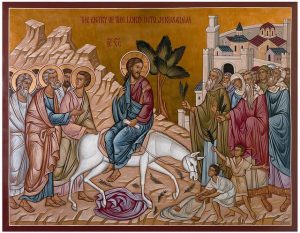
Holy Wednesday–March 28, 7:00 PM, Evening Prayer and Litany, Mt. Calvary Baptist Church (4325 Chain Bridge Rd, Fairfax, VA 22030)
Maundy Thursday–March 29, 7:00 PM, Holy Eucharist and Stripping of the Altar, Mt. Calvary.
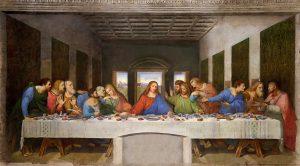
Good Friday–March 30, 12:00-3:00, Stations of the Cross with Reading of 7 Last Words and Meditation, Mt. Calvary.
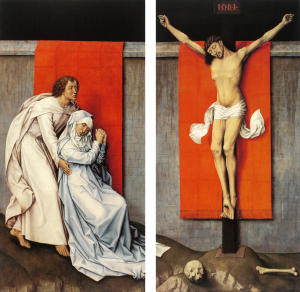
Easter–April 1, 6:30 AM, Sunrise Service with breakfast following, at Mt. Calvary Baptist Church (we have been graciously invited to participate in their service)
9:30 AM, Holy Eucharist, Easter Feast to follow, at Trinity Christian School.
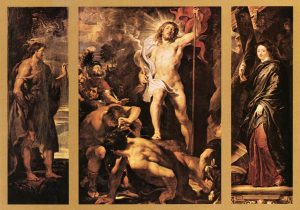
Ash Wednesday Service
February 14, 2018 7:15 PM
The service is a penitential beginning to the season of Lent, in which we intentionally repent of our sins, receive the imposition of ashes as a sign of our mourning for our sins and our repentance, and receive Holy Communion as a reminder that we are entirely dependent on God’s grace and Christ’s work as we enter the season. Join us!
Special location–we will be meeting in a chapel at 3901 Fair Ridge Drive, Fairfax, VA. Park behind the building (the side opposite the Harris Teeter). Enter from the parking lot and turn left to go down the hall–the chapel is in the 3rd door on the right. (We’ll have signs so you can find it!)
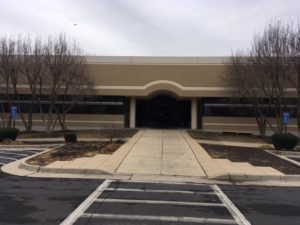

This Lenten season, we turn once again to an intentional season of repentance and Spiritual growth as we look forward to the Easter holiday. Lent begins on Ash Wednesday, February 14. Here are some of the things that we are doing here at Holy Trinity as we look forward to keeping a holy Lent!
Scripture Reading Schedule
Lent is a time in which we can re-commit ourselves to things that are important—such as the reading of Holy Scripture. This year we will read through 1-2 Samuel in Lent. You can look below for a reading schedule. Our Wednesday and Sunday night studies will focus on these readings, particularly focusing on David’s life.
Prayer
Commit yourself to faithful prayer during the Lenten season. Take 5 minutes on your lunch break every day to pray for our parish—specifically, for least one other family or member of the parish, by name.
Use the Daily Office and/or Family Prayer to guide you.
Fasting and Abstinence
Please make use of fasting (either entirely or partially) from a significant thing in your life, to provide space for prayer and funds for giving. Ideas include particular foods (sweets, meat, alcohol) or occupations (such as social media or entertainments).
Giving
We are joining with the whole REC as a part of the REC 100 Program to ask every adult member to give $100 to a special fund for domestic missions and Parish planting. Please refer to the brochure (on the REC’s website, http://www.recus.org/rec100.html) for more information on this campaign. In addition, make an effort to give sacrificially to the poor. For example, you can give to local ministries like the Lamb Center, or to those working worldwide through DonorSee (talk to Gret Glyer about this).
Reading Schedule:
Ash Wednesday, February 14—Psalm 51
February 15—1 Samuel 1-2
February 16—1 Samuel 3-4
February 17—1 Samuel 5
1st Sunday in Lent—Meditate on the Propers for the day.
February 19—1 Samuel 6-7
February 20—1 Samuel 8-9
February 21 (Ember Day)—1 Samuel 10-11
February 22—1 Samuel 12-13
February 23 (Ember Day)—1 Samuel 14-15
February 24 (St Matthias, Ember Day)—1 Samuel 16
2nd Sunday in Lent— Meditate on the Propers for the day.
February 26—1 Samuel 17-18
February 27—1 Samuel 19-20
February 28—1 Samuel 21
March 1—1 Samuel 22-23
March 2—1 Samuel 24-25
March 3—1 Samuel 26-27
3rd Sunday in Lent—Meditate on the Propers for the day.
March 5—1 Samuel 28-29
March 6—1 Samuel 30
March 7—1 Samuel 31
March 8—1 Samuel 1-2
March 9—2 Samuel 3-4
March 10—2 Samuel 5-6
4th Sunday in Lent— Meditate on the Propers for the day.
March 11—2 Samuel 7
March 12—2 Samuel 8
March 13—2 Samuel 9-10
March 14—2 Samuel 11-12
March 15—2 Samuel 13-14
March 16—2 Samuel 15
March 17—2 Samuel 16-17
Passion Sunday— Meditate on the Propers for the day.
March 19—2 Samuel 18-19
March 20—2 Samuel 20-21
March 21—2 Samuel 22
March 22—2 Samuel 23-24
March 24—1 Kings 1:1-2:10
Palm Sunday—Meditate on the Propers for the day.
Holy Week—Read the Propers appointed for each day.

Christmas Eve Worship
We will be meeting at 7:00 PM on December 24 for a service of Lessons and Carols with Holy Communion. This service will be held at Mt. Calvary Baptist Church (4325 Chain Bridge Rd, Fairfax, VA 22030). We hope you can join us for this special service in commemoration of our Savior’s birth!
Here is the audio of this past week’s sermon:
https://drive.google.com/open?id=0Bz8bkfIRFqaXM0NzRGRkdFRqNzA
Please forgive any typos in this manuscript. The text for the sermon is the Gospel Lesson, Luke 18:9-14.
The parable that we read this morning from St. Luke 18, beginning at verse 9, is striking in its message, and sobering in its clarity—and worthy of our close attention. If you have your Bibles, please turn with me to Luke, chapter 18, where we find that the humble acknowledgment of our need for God’s mercy results in justification—while prideful trust in one’s self does not.
Jesus’ parables don’t always being with a sentence that tells us who he was explicitly speaking to when he told a parable, like this one does. The passage says that Jesus spoke this parable to certain which trusted in themselves that they were righteous, and despised others.
It is important to note here that this trust in one’s self, that one is righteous, is put alongside despising others—as if those two things go together. In fact, they do go together. This attitude is illustrated in the narrative of the parable, but it is still instructive for us to consider the important thing that Scripture teaches us here simply by juxtaposing (by putting together) these two sinful attitudes. We can all see around us the practice of people despising each other. Upon a moment’s reflection, you can probably draw to mind even very recent examples where you have seen this or encountered it on the internet. It seems one of the reasons that this is so common is because the human heart, when it is entrapped by sin, wishes to escape from the guilt that rightly comes from sin—and so deflects from that guilt by blaming others, and by seeking to prove one’s own righteousness. This doesn’t mean, as some will often allege, that every time a fault or a negative thing is pointed out, that it is done to despise others, or with ill intent. The Church must be clear about sin, and about the effects of sin. This is often a very subtle issue, and involves our attitudes—but this parable gives us an example that can be helpful as we consider those subtleties.
In the parable we are presented with two men, who are both doing what seems from the outside like a good thing—they are going to the temple to pray. One of them was a Pharisee. Now, because of the way that Jesus often clashed with the Pharisees, and because they often opposed Him and his mission, we have a pretty negative view of them. If a person is “pharisaical,” it means that that is a person marked by self-righteousness. But in the time when Jesus spoke this parable, the Pharisees were greatly respected as a religious group that took seriously the law and took the claims of God seriously—even if it was true that many of them did so in a hypocritical way. The other man that came to the temple is called in the older translations “publican.” A publican was an employee of the Roman Empire in the provinces—in this case, most likely, this man was a tax collector. As someone who was, apparently, working in public service for the hated invaders, the Romans, who occupied Israel at this time period, it would be expected that this publican was a wicked man who didn’t care for His people and only cared about earning money for himself. It would be expected that he was a wicked man, while the Pharisee was a righteous man—almost as if we were to tell a story today and replace the Pharisee with someone in the role of priest, and the publican as a drug dealer. We would expect, in telling the story, a particular outcome for how the priest would pray, and how the drug dealer would pray—but the parable inverts those things.
The Pharisee came to pray not really even to pray to God, but because he doesn’t really even trust in God. Remember, the parable is against those who trust in themselves that they are righteous, and he certainly does that. This is illustrated for us in the fact that the text says he stood and prayed with himself. This means, ironically, that he came perhaps in name to pray to God, but in fact was praying to Himself. The fact he stands in prayer is not necessarily an issue, since in the ancient world standing in the temple to pray was not unusual—but his standing here, and the fact that he is basically praying to himself because he trusts in his own religious excellency, demonstrates that his standing instead of kneeling metaphorically demonstrates his view of himself.
And the fact of the matter is, the Pharisee has done some good things, and kept himself from some bad things. He lists out here extortioners, those who are unjust, adulterers, or even traitors like the publican, and he seems confident that he has not been guilty of those sins. Jesus doesn’t dispute that he hasn’t done those bad things. In addition, we see here that he has done some good and positive things as religious duties. He has fasted, he has given tithes of all that he possesses—in other words, he has rightly been doing some good things. Jesus isn’t telling this parable to tell us that actually extortion and adultery are good things we shouldn’t worry about, and that fasting and tithing are useless. No, the Pharisee here actually has good reason to be thankful—but the thing is he isn’t actually thankful to God. He gives thanks for his own acts, not for God’s acts.
The reason he isn’t actually thankful is that he seems to be putting his trust in his own righteousness, in his own religious obedience, as the means by which he can stand before God. He seems to think that God’s justice is like a scale, in which God will weigh out if you’ve done more bad things than good things, or more good things than bad—and if you’ve done more good, than that means that you are going to be ok. The Pharisee thinks that he is right with God, because he’s done enough things to earn God’s favor, and not done enough sin to lose God’s favor—and he despises others, like the publican, who he thinks is clearly lost his place in God’s covenant through his life of sin.
This figure is contrasted in the parable with the publican. In contrast to the Pharisee, who proudly saddles up to the front of the temple, near the altar, to pray in front of everyone, the publican stands far off. In contrast to the Pharisee who stands up straight, the publican keeps his eyes lowered—he won’t even look up to heaven. In contrast to praying proudly and verbosely, the publican beats his breast to show his mourning, and says: God, be merciful to me, a sinner.
You see, the publican knew that he couldn’t trust in himself. He knew that he was a sinner. Publicans and tax collectors had a reputation of taking advantage of their position and the backing of the Roman Army to enrich themselves, effectively stealing from their countryman. This was a man who knew his sin. And he did not come to the temple to get social respect, he didn’t come to demonstrate his justification of himself. He came to repent, to get right with God by pleading for God’s mercy. He knew that he deserved God’s punishment for his sin—yet he pleaded for mercy.
Jesus tells us that the publican departed from the temple right with God—justified before Him, while the Pharisee departed not justified. Despite all the apparent good that the Pharisee had done, the fact that he did not confess his need for God, even in the midst of the good things that he had done, means that he was not right with God. Meanwhile, the publican, who confessed his sin before God—and significantly, turned to God for mercy—departed from there justified.
A recent study by a group called “Lifeway” indicated that 2/3 of Americans would say that they are sinners. Many folks in the world today have an idea of what sin is—they have an idea that their life is perhaps not all that it should be. That they have not done all that they should have done. Yet I would guess that a good portion of that 2/3—in fact, the study says more than half of it—does not acknowledge that in their sin they have need of God to save them. Instead, they acknowledge they are sinners, but say they are working on it. To say that they are sinners but working on it is essentially to do what the Pharisee did here—to trust in themselves, that they can make themselves righteous through their actions.
But the Gospel of the Christian faith proclaims to us, in the midst of our sin and our great need, that we cannot earn our justification. If we trust in ourselves, we will not be right with God. The Gospel proclaims to us God’s provision for sin, which was made by Jesus Christ, our Savior. Jesus came and died for this sins of the world, that by faith and repentance God’s people might turn to Him, and ask for His mercy. And God, who is rich in grace in mercy, when His people turn to Him in repentance and faith, delights to give mercy. To rightly work on our sin, then, is to turn our lives over to God—to confess our sins, to trust in Him to forgive our sins, and to trust in Him and His grace to be healed of our sins.
So the question for you today is: Who are you trusting in? Are you trusting in yourself, and despising others? Do you look at your own religious observance, and look at other Christians or other people in the world who may not have a good understanding or practice of the faith, who may in fact of a bad or deficient practice in their lives, and think to yourself: thank you God, for not making me like them? One of the main challenges of a small church, and a small denomination, is that we can become self-righteous and censorious—we look to our own obedience for our justification, and make our religious practice about not being one of the bad churches, instead of making it about who we are called to be by the Spirit.
Are we trusting in ourselves, or do we pray truly: God have mercy on me, a sinner? This parable is one of the reasons why the liturgy teaches us so regularly that we are in need of God’s grace and mercy. The greatest need of human beings is to be made right with God—and here Jesus reminds us is that God opposes the proud, but gives grace to the humble. If we come to him in pride, listing our achievements, despising others for not being like us—then we will not depart from here justified. But if we come in humility, which is key to true faith, we can say in the words of the liturgy, and with the whole Church, God be merciful to me. And God honors that prayer, in faith.
So let us come now in faith, to pray that God might have mercy on us, and that we might walk in humility—and in His ways—all the days of our lives. Amen.
Holy Trinity Church will have the service of Morning Prayer on August 13. Lay Reader William Barto will lead the service and preach that day. We hope you will be able to attend!
Holy Trinity Church is glad to welcome the Rev. Dcn. Barton Gingerich to read the Office of Morning Prayer and preach on Sunday, August 6.
Dcn. Bart serves at St. Jude’s REC in Richmond, VA.
We will not be holding Wednesday Night Evening Prayer on 8/2 or 8/9. We will resume Evening Prayer and study on 8/16 at 7:00 PM at Mt. Calvary Baptist Church.
Please forgive any typos in this manuscript. The passages referenced are 2 Samuel 16:5-14, 2 Samuel 19:16-23, and 1 Kings 2:8-9, 36-46
There are passages in the Scriptures that are relatively unfamiliar or obscure. Our Old Testament lesson that we heard for today from 2 Samuel 19 is one such passage. In this passage we are jumping in the middle of an enormously difficult event in the life of King David, and in this passage we see great examples of humility, of restraint, and forgiveness—but also a warning of the need to persevere. There are actually 3 passages we will look at today, all centering around King David and his relationship with a man named Shimei. So if you have your Bible, you can turn to 2 Samuel, where we will be looking particularly in chapters 16 and 19, and in 1 Kings chapter 2.
King David was the second King of Israel, and is very important to Biblical history, both in his own right and also as a type or forerunner of Jesus Christ. We are told that David was a man after God’s own heart; in 1 Samuel God gave to David the great promise that a King would come from his line who would sit on the throne forever, which points forward to the Son of David, Jesus Christ. But King David’s life itself was certainly not perfect; he was himself a sinner, and even as one who pointed to Christ, He also pointed to the great need that all human beings have for Christ. This is seen particularly in his family life. For our purposes this morning, we need only see that one of David’s sons, named Absalom, had consolidated power with several of the northern tribes of Israel and decided to revolt against his father, and seize power. David’s hold on his kingdom became so tenuous that he felt obliged to leave Jerusalem and regroup with an army outside the city. David actually had to leave his throne, in what would have appeared to be shame, since he could not be safe in Jerusalem.
This is the situation in which we read the first passage, 2 Samuel 16:5-14, where we read: “5 Now when King David came to Bahurim, there was a man from the family of the house of Saul, whose name was Shimei the son of Gera, coming from there. He came out, cursing continuously as he came. 6 And he threw stones at David and at all the servants of King David. And all the people and all the mighty men were on his right hand and on his left. 7 Also Shimei said thus when he cursed: “Come out! Come out! You bloodthirsty man, you rogue! 8 The Lord has brought upon you all the blood of the house of Saul, in whose place you have reigned; and the Lord has delivered the kingdom into the hand of Absalom your son. So now you are caught in your own evil, because you are a bloodthirsty man!”’ As David departed from Jerusalem, unjustly, fleeing from the usurpers in shame, this man heaped abuse on him as he fled. This was wrong of Shimei to do for a couple of reasons. First, in Exodus 22:28, we read this: “Thou shalt not revile God, nor curse a ruler of thy people.” David was the true anointed leader of the people of Israel. David himself had obeyed this command when Saul was pursuing him to kill him, after David himself had been anointed. David did not take multiple opportunities to do Saul harm, or even to kill him. Instead, he waited for God’s judgment and timing, and did not strike Saul. But here Shimei hurls abuse on David, cursing the anointed ruler.
In addition to this, Shimei makes false and cruel comments toward David. He accuses David of being a worthless man, of getting what he deserved, of in fact having usurped the throne himself, from the previous King, Saul. This was, of course, not the case. David had not murdered Saul or his family, or usurped the throne. But Shimei, Saul’s kinsman, had harbored a lie in his heart, that David had murdred Saul to come to the throne—and chose this time vent his spleen, to heap his false curses upon David.
David was traveling with his court and with his guards. One of his guards and generals, his nephew Abishai, offered to go walk across the valley to the opposite ridge, where Shimei was walking parallel to them, throwing rocks and abuse, and offered to take off his head. Now, on one level David would have been justified in having Abishai do so. What Shimei was doing was a serious affront, it was treason, it was disobeying the Bible, and it was slander. But David held his hand. He said: “Leave him alone, and let him curse, for the LORD has told him to. It may be that the LORD will look on the wrong done to me, and the LORD will repay me with good for his cursing today.” David endured the mocking and false words of Shimei, confident that the LORD would vindicate him. He trusted that God saw all things, and that God would take care of Him—so that He did not need to strike back to get his own revenge in the present. He had a broader perspective than merely what was happening to him in the present, and the pain he was experiencing. He saw that God was involved in his life, and in his affairs, even in his pain.
In the intervening chapters, David and Absalom’s forces fought a costly battle, in which David’s forces were victorious, and Absalom was killed. This was a vindication for David—God had indeed placed him on the throne, and secured his throne, according to the promise God had made—even though it was at great cost for David, for he loved his son, even when his son had rebelled against him.
Which leads us to the passage we read earlier today. As the victorious David returned to Jerusalem, Shimei made a point of crossing over the Jordan, first, to go to David to apologize. His prophecy was in fact not right—God had not given the kingdom over to Absalom, and the abuse he had heaped on David was not justified.
Perhaps you can identify a time in your own life when someone has said things about you, or done things to you, that were not justified. This is certainly what happened to David here. Shimei recognized his wrong. We cannot of course know his sincerity—it seems that others doubted it, and it is likely from what we’ll say in a minute that he wasn’t sincere. Yet listen to what he said when he came before David: “Let not my lord hold me guilty or remember how your servant did wrong on the day my lord the king left Jerusalem. Do not let the king take it to heart. For your servant knows that I have sinned. Therefore, behold, I have come this day, the first of all the house of Joseph to come down to meet my Lord the King.” Notice here Shimei’s words of repentance. He takes full responsibility for the wrong that he has committed, for the wrong he has done. He recognizes his sin, and pleads for forgiveness.
Again, Abishai, perhaps out of an abundance of loyalty to David, says that Shimei deserves to die for what he has done—and to die right then. But David, again, refused Abishai’s counsel. David was not going to enforce a deadly punishment on this man who seemed to be penitent. And so he swore that day that he would not execute him. David here shows abundant restraint. He forgives even though it is costing him something, even though it is difficult for him to do.
But David’s forgiveness was not perfect, in contrast to God’s, which is perfect. I think it should be noted, however, that Shimei bares most of the blame for the way that things turned out. When he gave his last words and counsel to his son, Solomon, before Solomon took the throne, David asked Solomon to not forget what Shimei had done, and to deal with him in wisdom. This was probably done by David to ensure that Solomon had an idea of possible threats in his Kingdom, and to be wary. This Solomon did by putting a strict restriction on Shimei—he was to live in Jerusalem, and not leave, surely so that he wouldn’t be able to go and join with any who would have wished to rebel against David’s son. Yet Shimei blatantly and foolishly disregarded Solomon’s command, which resulted in his just execution.
So what are we to make of all of this?
First, we have examples here of great humility. David here shows humility in not striking back immediately. In the context of an Ancient Near Eastern King, insults were not to be tolerated. Even today, there are folks you wouldn’t dare insult without fear of great reprisals. Although David was a warrior, he knew that there was a time to forgive, to show restraint, even when gravely wronged. In the Lord’s Prayer, we pray that our trespasses might be forgiven, as we forgive those who trespass against us. Forgiveness is a requirement as a response to the Gospel. And not just forgiveness in word, but forgiveness that is costly. David’s forgiveness is of a grave affront—and he did not respond to that evil with evil, but instead with forgiveness. Shimei, in his approach to David, shows great humility as well, as he abased himself before the King, and did not make excuses. In the Gospel lesson for today, Jesus tells us that we are to not give into wrath, and anger—which clearly Shimei had in his initial heaping of wrath upon David. But Jesus also says that if we have something against someone, we ought to be reconciled to them as we come to the altar of God. David was re-approaching the temple when Shimei went to him, and they settled their issue. Similarly, this applies to us in the New Covenant, in the Church, where we are instructed to settle our differences with each other, to be at peace with our neighbors, before we come to the Lord’s Table, the Altar of the New Covenant. In fact, of the requirements for coming to the Lord’s table is being at peace with our neighbors in the Church. We see this in 1 Corinthians 11, among other places. The Lord’s table is about our relationship with God, and what God does for us—but it is also about us and our neighbors in the Church. We are to be at peace with fellow believers as we come to this table, for it is a table of unity in the Body of Christ. If we are not at peace with our neighbors, then we are called to wisely not come to this altar, until we have made peace with them. Are we at peace with our neighbors as we are coming to the table today? If not, settle it before you come to the Table today.
But we also need to recall as we come to this table that the Lord Jesus gives us complete forgiveness. When we come to Jesus, as Shimei came to David, and truly repent of our sins, Jesus grants to us full and perfect forgiveness. Even if David’s forgiveness was perhaps imperfect, Jesus’ forgiveness is not. But we must come to him with true repentance, with full repentance. Shimei’s repentance, late in his life, proved to be partial. He did not persevere in his repentance. So we must remember today that in the great grace of God, he calls us to persevere in repentance, not to rely on repentance from our past, but to renew our repentance, today. So as we come to this table, let us come with full repentance, trusting in the One who died for our forgiveness, and ever lives that we might be justified. Amen.
Please forgive any typos in this manuscript. The text for the sermon is from the Epistle lesson: 1 Peter 3:8-9
Last year during Wednesday night Bible study we spent a great deal of time talking about 1 Peter. 1 Peter has a great deal to say to us as Christians, particularly living in the sort of post-Christian environment that we face in the West. Living as a faithful Christian now will mark us apart in this world in a way that was not necessarily the case in the Western world in the past. What I mean by that is this: it used to be that the default position for someone who was not clearly another religion was Christianity, and this is no longer really the case—Christianity, or even knowledge of it, cannot be assumed in the world. This fact should not lead to despair in the Church—or even anger. It should lead us to renewed resolve to live like a Christian in this world, to live in such a way as to reflect the glory of the Savior who has bought us and called us, remembering that the Church has faced such times before, and even times much worse. St. Peter’s comments in our Epistle lesson for today, from chapter 3 beginning at verse 8, provide us with a godly reminder of what our lives are supposed to look like as followers of Christ in the midst of this world. I’m only going to look at the first two verses of the passage today.
Story and I watched this week one of those period dramas that are on television that have to do with the landed gentry in England seeking to provide an inheritance for their son, by trying to convince him to marry a very wealthy wife, which he doesn’t want to do because he is in love with his childhood friend who is practically penniless. That particular story isn’t important to what I am saying today except to note within it the concept of inheritance. In that culture about 200 years ago, it was understood that the eldest son by virtue simply of being the eldest son had particular responsibilities and also privileges. He would inherit the estate—if the estate was in debt, he inherited the debt. If the estate was exceedingly wealthy, it all would become his. Of course, the knowledge of this had an enormous effect on the life of the young man who was the heir. His life and destiny was tied, even without anything he had done, to the estate of his forebears.
In verse 9 of this passage, St. Peter writes: knowing that you are called to this, that ye should inherit a blessing. The construction of the sentence here is somewhat ambiguous, but it seems what St. Peter is driving at is that knowing that we are ones who are inheritors—ones who will inherit a blessing—has to control how we think about the world around us and how we treat those around us. Christians are those who can know that they will inherit a blessing—not inherit debt, for the debts have been paid by our Savior. Not inherit judgment, for the Savior has satisfied the judgment. Not inherit destruction, for the Savior died to pay the penalty for us. But we will inherit blessing. We have hope of inheriting blessing because we are connected with Jesus Christ, the Savior. St. Paul makes this same point in Romans chapter 8 (vs. 16-17) when he says The Spirit Himself beareth witness with our spirit, that we are the children of God: And if children, then heirs; heirs of God, and joint-heirs with Christ; if so be that we suffer with him, that we may be also glorified together. Joint-heirs with Christ. As we are connected to Jesus Christ, and to His body, the Church, we receive the benefits of being heirs with Jesus. The inheritance that He secured by His death and resurrection, then, is freely given to His people who are joined to Him by Grace—for it is by grace you have been saved, through faith, and this not of yourselves—it is the gift of God, not by works, that no man may boast, for we are God’s workmanship, created in Christ Jesus for good works, we He has prepared beforehand that we might walk in them. Being joined to Jesus, united to Christ, then, is central to the idea of salvation. This is why the sacraments are so important—in baptism we receive the sign and seal of God’s adoption of us, that we might be heirs. Of course, we must walk in faith to receive the benefit of this adoption, trusting in the benefit of the salvation that Christ so freely gives. We need to keep this knowledge ever before our hearts and minds—dwelling in it, reveling in it.
For part of being an heir means living in a way that is commensurate with being an heir, that we not bring shame on the One who has called us to such a glorious calling. This is why Scripture will unblinkingly teach us that we are to be holy, because God is holy, while teaching us the wonderful gift that God gives in salvation. So what does this passage teach us?
The first sentence of the passage emphasizes the same sort of ideas, although of course using different words. Be ye all of one mind, having compassion to one another, love as brothers, have a tender heart, have a humble mind. These sorts of postures are commensurate with those who are heirs, with those who have received that inheritance apart from our own actions or even decisions. This passage is referring to those particularly in the Church—we are to be of one mind together, having the mind of Christ. We are to treat each other with compassion—not holding each other to a cruel or unremitting standard, but having compassion for those fellow believers who walk with us in the Church, loving each other as a family. We are to be tender-hearted toward each other, and humble toward each other. Why? Because we are called together to this inheritance, not merely as a group of individuals. We are members incorporate in Christ’s body, not merely individuals seeking to find our way.
This means that with others, and particularly with fellow Christians, we are not to return wrong for wrong, or unkind word for unkind word. We live in a world in which this sort of thinking is very unusual, to say the least. In our current public discourse, that is, in the political environment, hitting back with unkind words or playing a dirty trick in return for a dirty trick, is thought to be wise. Much entertainment is based on the idea of revenge—returning an unkindness or an unkind word to try to establish justice. This sort of thinking can even infiltrate the Church, so that we think that we are called somehow by a sense of justice to strike back at those who have wronged us—or perhaps to ignore them, or perhaps to treat them unkindly. But that is not our calling. It is our calling to not return evil for evil, but to return blessing.
For think of this. We as people are those ourselves who in our flesh were afar off from God. Yet God in His great mercy did not return to us evil for our evil, did not return to us unkind words even when we spoke against Him. No, in return for our evil he forgave us our sins by His Son, and adopted us as His children. In return for our unkind words, He speaks to us words of absolution, of forgiveness, of blessing in the Triune name, of peace. If we are called to this, how can we treat our fellow Christians with unkindness or bad words, knowing that God has not treated us this way, but instead has blessed us with every Spiritual blessing in Christ Jesus.
Of course, this sort of attitude and this sort of response to people is not only to be toward those who are in the Church. It does start here, but it does not end here. I remarked at the beginning of the sermon that following Christ should involve us being marked out from the world, and faithfully following Christ is going to make that mark evident. Well, these are some of those marks—to even when we are wronged by someone outside of the Body, in word or in deed, we do not return evil for evil—but rather forgive, and show compassion. For we are called to show and speak blessing.
This showing and speaking blessing involves responding in kindness and in peace when others are filled with unrighteous anger or rage. But it also involves speaking words of blessing in and by prayer. Remember that Jesus calls for us even to pray for our enemies, since He prayed for His. This will mean that words of focused and committed prayer are going to characterize the sort of blessing that God is calling us to.
Brothers and sisters, if we are in Christ, we are called by Him to an inheritance of great blessing. And we if we are called to an inheritance of great blessing, that means that we must be, in the present, people of blessing. This blessing starts with how we treat each other here in the Church, and then must extend out to those in the world.
Today we have already heard words of blessing. We are about to hear many more. Hear and receive the words of blessing in faith, trusting that the Word that God speaks to you today—that in Christ you are forgiven, that Christ will feed you this day by His body and His blood—trusting that these words are true. And if they are true, then pray God that by His Spirit He might equip you to walk in that blessing and in holiness through this week, and through your life—that you might be a blessing to those around you. Amen.

We will have a service of Holy Communion at 7:30 PM on Wednesday, May 24 to celebrate Jesus Christ’s glorious Ascension. The service will be held at Mt. Calvary Baptist Church (4325 Chain Bridge Rd, Fairfax, VA 22030).
Ascension Day is always a Thursday after the Fifth Sunday after Easter. This year, we will be transferring the service to Rogation Wednesday.
We hope to see you on May 24!
This Wednesday evening (April 19, 2017) we will not be meeting for our weekly Evening Prayer Service.
May God bless you this Easter week, and may you always live in the joy of the risen Lord!
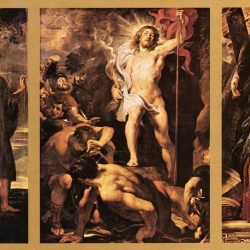
Sunday April 9 – Palm Sunday, 9:30am
Wednesday April 12 – Wednesday, 7:00pm
Thursday April 13 – Maundy Thursday, 7:00pm
Friday April 14 – Good Friday, 12:00-3:00pm
Sunday April 16 – Easter Sunday, 9:30am
(more…)
Ash Wednesday marks the beginning of Lent, and as such it is an important occasion for our parish.
We will have our Ash Wednesday service–the Imposition of Ashes, Penitential Office, and Holy Communion–at 7:30 PM on Wednesday, March 1. It will be held at Mt. Calvary Baptist Church (4325 Chain Bridge Rd, Fairfax, VA 22030).
Please join us Christmas morning at a special time (10:00 AM), for a joyful Christmas service of Lessons and Carols, with Holy Communion.